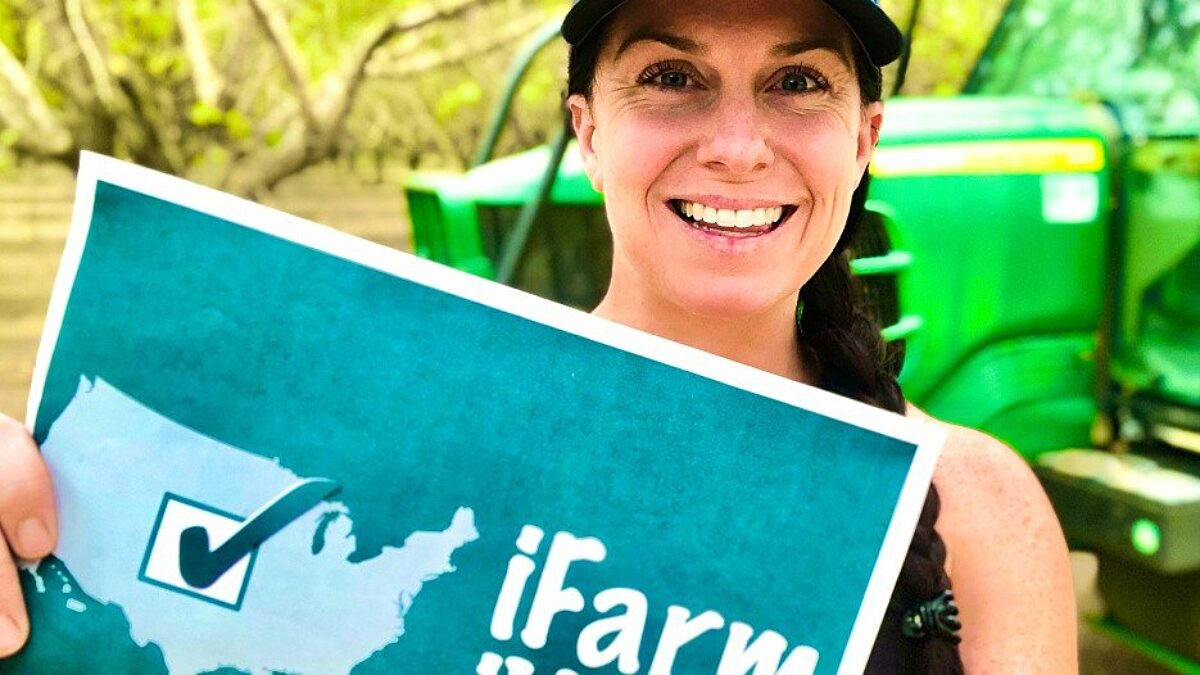Pledge to Vote in November!
TOPICS
2020 ElectionZippy Duvall
President

Zippy Duvall
President
In Farm Bureau, we often talk about how active and engaged our members are in policy advocacy. We’re usually referring to Farm Bureau members’ engagement on specific legislation or issues—their calls, emails and in-person visits (pre-pandemic, anyway) to ensure that those who are elected to serve us are aware of what’s important to agriculture. Just as important is engagement to make sure the right people get into office in the first place.
Farmers and ranchers tend to vote at a high rate. They know that who’s in office can have a huge impact on their ability to farm. From regulations and taxes to access to labor and foreign markets, policies supported by those whom we elect to Congress, the White House and other offices directly affect our farms and families—and our ability to feed our nation.
Farm Bureau is working to ensure that farmers and ranchers make an impact at the polls in two ways: encouraging them to vote and helping them to be informed voters.
I don’t have to tell you that the next election, coming up this November 3, just six and a half weeks from now, is a big one. Not only will voters choose the president of the United States. A third of U.S. Senate seats up for election this November, and of course all 435 U.S. House seats are up. Plus, across the country, hundreds of state and local offices are on the ballot.
Farm Bureau is working to ensure that farmers and ranchers make an impact at the polls in two ways: encouraging them to vote and helping them to be informed voters.
We recently launched our iFarmiVote toolkit with information farmers need before voting. They can register to vote and find ballot information by using the toolkit. They can look up who their candidates are. They can even find out if their voting location, hours and requirements have changed because of the pandemic.
While on the toolkit website, farmers can pledge to vote in the 2020 elections. By taking the pledge, they show the importance of the farm vote and the power of the farmers’ voice. We’re asking Farm Bureau members to take that pledge and then share it on social media so their friends and followers can do the same.
Also, last week, we published President Donald Trump’s and former Vice President Joe Biden’s responses to 12 questions on our presidential questionnaire. We’re proud that, for 40 years if not longer, presidential candidates have responded with their positions on issues that affect America’s farmers and food security. We publish their answers as we receive them, unedited, so farmers and ranchers can get an unfiltered look at the candidates’ platforms and make the best choice based on the issues that matter to them.
As I said in our announcement of the questionnaire answers, the views of Farm Bureau members are as diverse as the crops they grow and the animals they raise. But they have a lot in common, too: patriotism, a sense of duty, a strong work ethic and engagement in civic matters and policy advocacy. It’s these values that will drive them to do the work and inform themselves on where the candidates stand—and drive them, once again, to vote at a high rate this November.
Zippy Duvall
President
Vincent “Zippy” Duvall, a poultry, cattle and hay producer from Greene County, Georgia, is the 12th president of the American Farm Bureau Federation.
Trending Topics
VIEW ALL